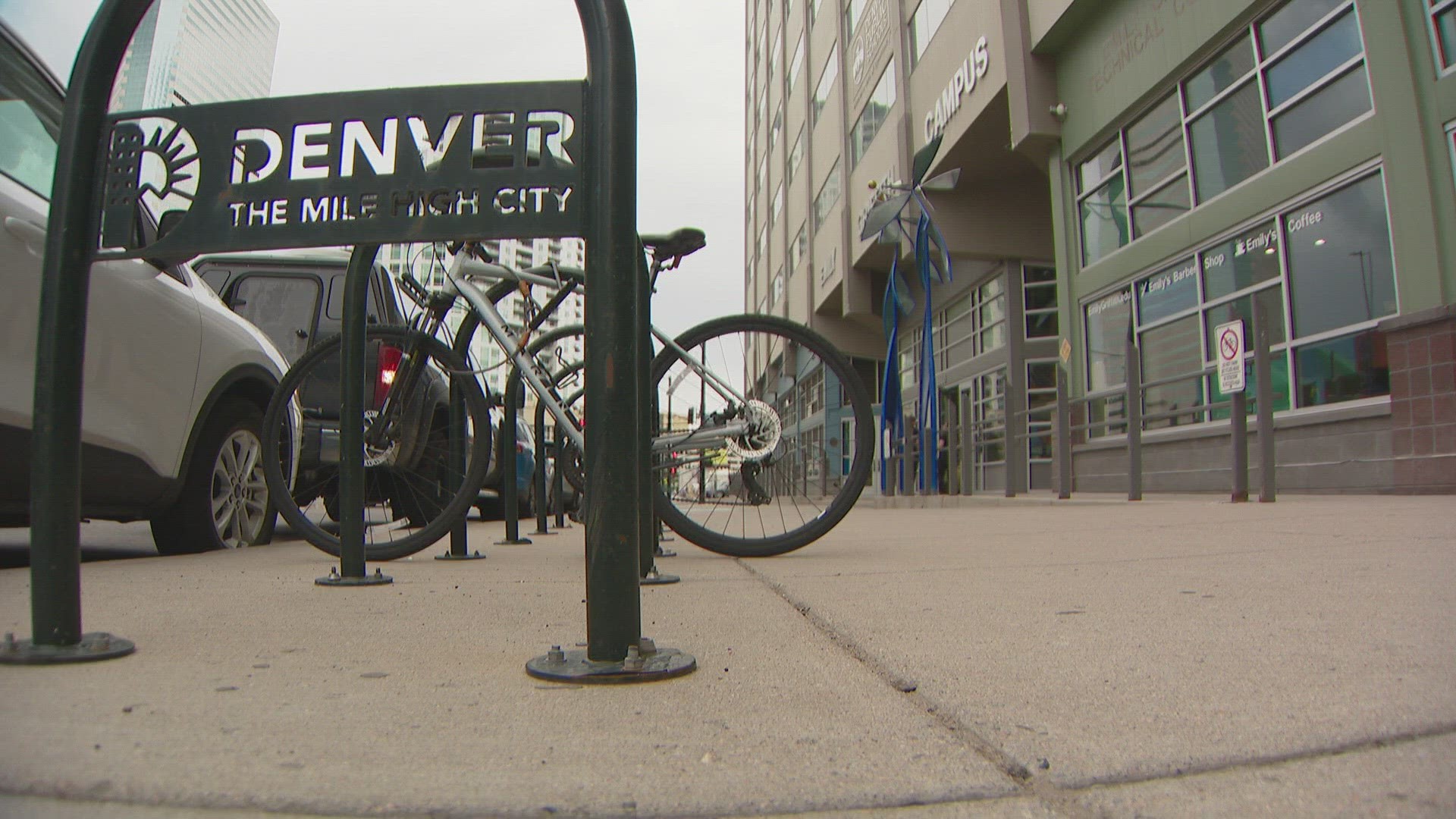DENVER — At a work session Thursday, the Denver Public Schools Board of Education will discuss two proposals for changes to its policies surrounding school resource officers.
One of the proposals, written by board members Directors Auon'tai Anderson, Scott Esserman and Michelle Quattlebaum, calls for the superintendent to establish Community Resource Officers (CROs) -- Denver police officers who are not stationed at specific schools, but are assigned to regions and available to help as necessary.
That proposal calls for DPS and the Denver Police Department (DPD) to establish a Memorandum of Understanding (MOU) outlining how that relationship would work. It limits the role of armed DPD officers to situations where they are needed to protect the physical safety of students or staff, or when law enforcement involvement is required by law.
The proposal prohibits CROs from conducting student searches unless officers have probable cause. It also prohibits school-based personnel from performing student searches, and mandates that task be conducted only by the district's in-house safety team, the Department of Climate and Safety.
The proposal calls for extensive training for CROs, as outlined by the MOU and with assistance from community partners, on restorative practices and culturally responsive de-escalation, among other requirements.
The proposal also mandates any interaction between DPD personnel and students be documented, including information about the nature of the interaction and the demographics of the student. Board members said they want that data presented monthly to the Board of Education for review.
"I want to make sure that we're grounding [this proposed policy] in the values of this board and in the values of this district," Esserman said during a press conference Wednesday.
"DPS will be a district that is free from oppressive systems and structures rooted in racism, and one which centers, students and team members with a focus on racial and educational equity, enabling students to ultimately become conscientious global citizens and collaborative learners. This policy fulfills that end statement."
Esserman and Anderson called this proposal a "middle ground." They made a thinly-veiled reference to the East High parents who have gathered weekly to advocate for school resource officers and other safety measures.
"We have reached out to community, we have heard from community, we receive emails from community that are extensive. They may not be the loudest voices you're hearing, they may not be organizing press conferences on a weekly basis, but they are telling us loudly and clearly that having SROs in the building is, in fact, an oppressive system," Esserman said.
"Quite frankly, I still hold to the belief that School Resource Officers should not be present in our schools period. And if we could pass EL 10.10 as is, I would be supporting that," sad Anderson, who led the 2020 effort to remove SROs from DPS. Anderson said DPS has seen a 90% decrease in tickets and citations and students since then.
"But this is a third way. This is able to bring the what we are hearing from our communities, what we are hearing from on both sides of this issue, and allowing us to make sure that we have support for all students across the district."
The other proposal calls for the district to "establish administration policies for when the persistent presence of School Resource Officers (SROs) on school property is necessary," board member Scott Baldermann wrote that proposal but "discussed it with other board members," said DPS Deputy Chief of Staff Deborah Staten.
That proposal gives the Superintendent power to choose "when, where, and how long" an SRO will be present on DPS campuses. It also calls for SROs to be certified by the National Association of School Resource Officers (NASRO).
And like the other proposal, Baldermann's limits the role of SROs in discipline, and calls for documentation of SRO interactions with students - including quarterly reports to the Board of Education about the number of tickets, arrests, and other discipline issued.
Staten said the board will consider both proposals, and discuss whether they can be reconciled. They're hoping to have a final decision by the end of June.
In response to questions from 9NEWS, Denver Police Chief Ron Thomas released a statement Wednesday saying:
"The clear preference of the Denver Police Department is for full-time School Resource Officers in all comprehensive DPS High Schools. They will serve as a layer of safety planning and, more importantly, maintaining positive relationships with youth in schools. This position was shared with members of the school board. The decision will ultimately be that of DPS. DPD will comply with the direction of the DPS Board and school Administration. There are still a number of uncertainties with multiple options still on the table. While the department has begun logistical planning internally for different options, we will not comment about those plans until after a final determination has been made.”
The current district policy says the superintendent will "Not staff district schools with school resource officers or the consistent presence of security armed with guns or any other law enforcement personnel."
In March, after a shooting that injured two staff members at East High School, Superintendent Alex Marrero said DPS would add an armed officer to each high school. He acknowledged the decision went against district policy.
Marrero said at the time that the plan would be in place through the remainder of the school year. The Board of Education backed the superintendent's decision.
The school board voted unanimously in the summer of 2020 to remove 18 Denver police officers from its schools and rely on the school district's own safety officers instead.
The decision came amid social justice protests and was based on data showing the majority of students ticketed and arrested were Black and Latino students between the ages of 10 and 15.
SUGGESTED VIDEOS: Denver Public School District safety

